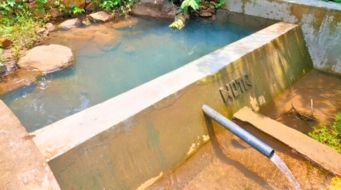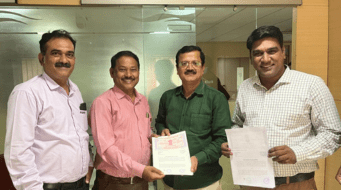~ by Subhash Turkewadkar
This blog post has been supported by HSBC Software Development (India) Private Limited as a part of the ‘Nature-based Solutions for Sustainable Rural Landscapes and Climate Resilience’ project.
Research is the systematic process of gathering and analyzing information to ‘know the unknown’ or to enhance understanding and knowledge on a specific subject. Additionally, research is used for designing and developing appropriate strategies through testing or implementing interventions for achieving the desired objectives. This type of research is known as applied or action research [Kothari, 2004].
In the context of action research, the Research into Use (RiU) approach plays an important role in engaging and involving the communities in the research process and communicating research findings for enabling their decision making or influencing their behaviour and practices. It also helps to make research findings more useful and relevant to practitioners, policymakers, and other stakeholders working to improve the conditions or situations [Bell & Morse, 2013].

WOTR and W-CReS, WOTR’s dedicated research arm, have adopted the RiU approach as the core strategy to bring about changes in understanding, attitude, and practices of rural communities on practices of natural resources usage and nudging their behaviour towards ecosystem-based adaptation.
Illustration of Applying the Research into Use (RiU) approach
To illustrate the application of Research into Use (RiU) at WOTR, l am sharing a few observations and insights from a recent workshop we organised with the rural community. W-CReS has been researching farm pond practices and advocating for nature and environment-friendly farm pond practices by farmers for over a decade. Recently, WOTR conducted a study in six villages in the Sangamner block of Ahmednagar district (M.S) and shared its key findings in this two-day workshop.
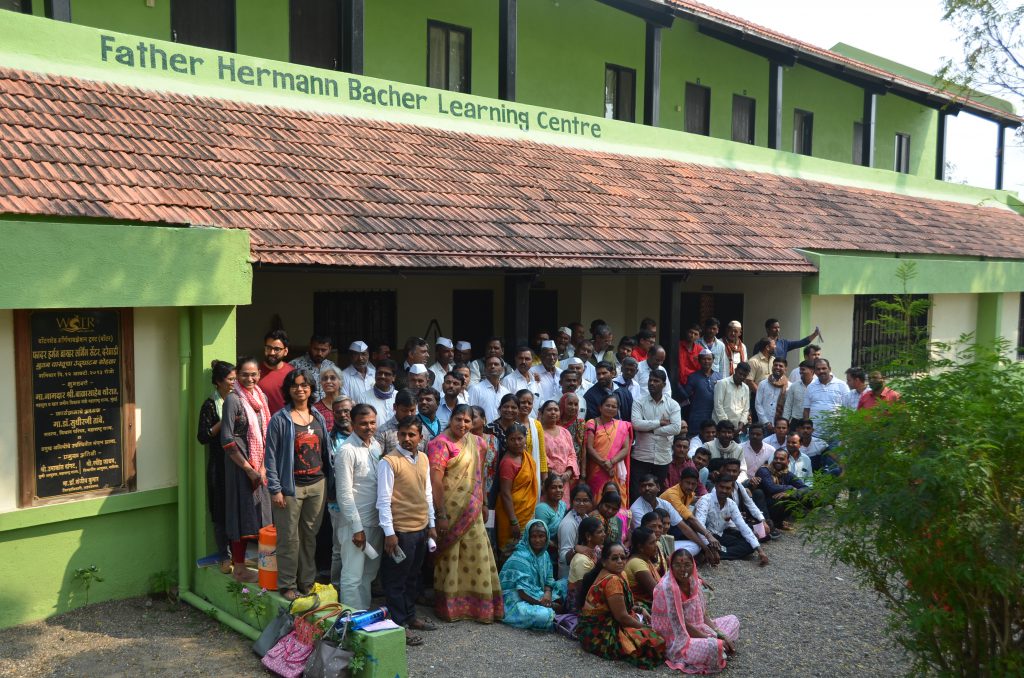
The workshop had 80 villagers from different villages with varied backgrounds, including farm pond owners, non-farm pond owners, livestock owners, landless poor, and representatives from the Gram Panchayat, local resource management institutes, self-help groups, and the youth. The workshop was conducted in the local language and used audio-visual aids so that participants, men and women, easily understood its content and reflected on it. The step-by-step approach and interactive activities helped to build understanding and engagement among the participants.
The key finding of the study that ‘many farm ponds are used as water storage tanks’ was an eye-opener for the participants. Many of them were earlier unaware of the indirect losses incurred from farm ponds and their diverse effects on groundwater and equity. Furthermore, the workshop allowed farmers and experts to interact with each other and learn about sustainable water management practices.
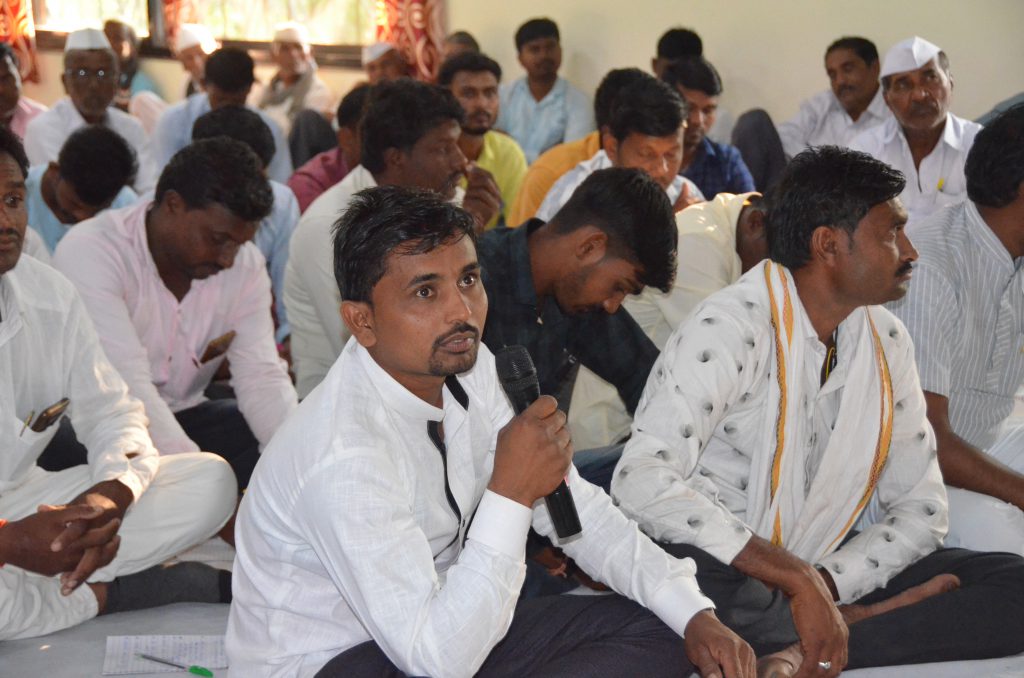
During the workshop, various games and activities were conducted to explain different scenarios, including the “Water-Bucket Game”. This game assigned roles to three generations of water users from different families, each competing to fill up bottles of water from a common resource – a bucket – and maximize their benefits. However, the first and second-generation players aggressively pursued benefits, leaving little water for the last-generation players. The visuals of people scraping water out of a bucket prompted reflection on the potential reality for future generations. The water-bucket game is an example of an activity that raises awareness about sustainable water management and the trade-offs between short-term benefits and long-term sustainability.
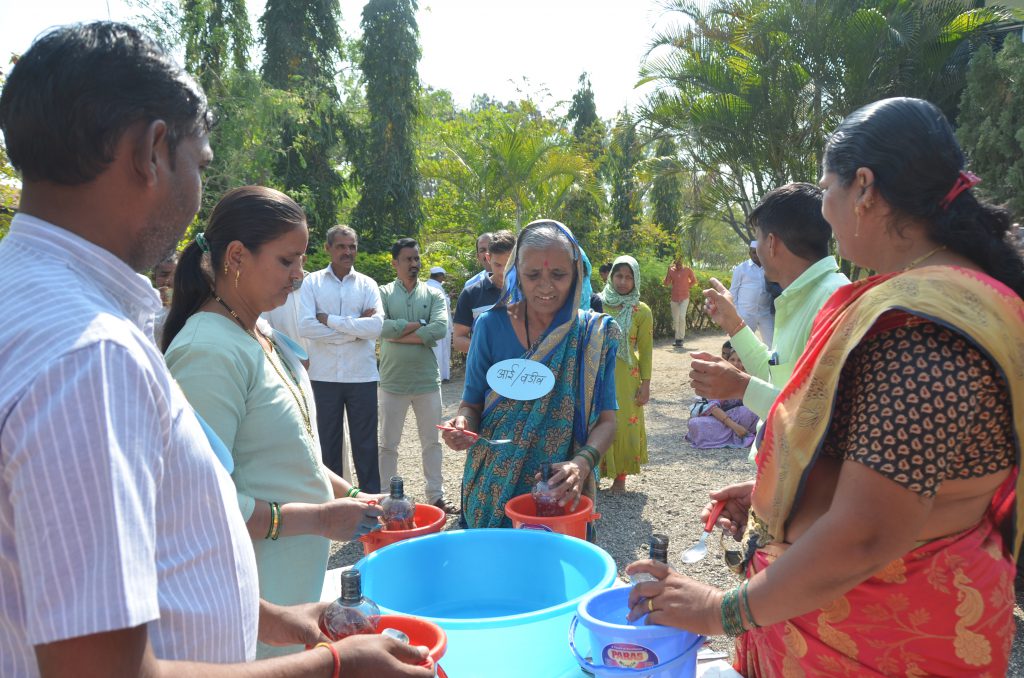
The workshop featured an interactive panel discussion, where representatives from participating villages shared best practices for water management. Drawing on insights generated from the study, the workshop fostered trust and credibility between researchers and community members, promoting evidence-based policies and practices.
An important outcome of the workshop was the participants’ strong ownership and commitment to adopt and promote sustainable practices. The villagers demonstrated their commitment by planning to widely disseminate the research findings, discussing these issues at socio-cultural events, Gram Sabha meetings, and promoting appropriate practices for farm pond use. The workshop served as a catalyst for community-led initiatives towards sustainable water management practices.
Why is “Bringing Research Back to Communities through RiU” important?
Effective communication of research findings to rural communities can be a powerful tool for knowledge dissemination and learning. It can be particularly helpful in areas where access to information and data on local issues is limited. By sharing research findings and encouraging discussions and interactions, community members can learn about new ideas, practices, and technologies that can improve their lives and livelihoods.
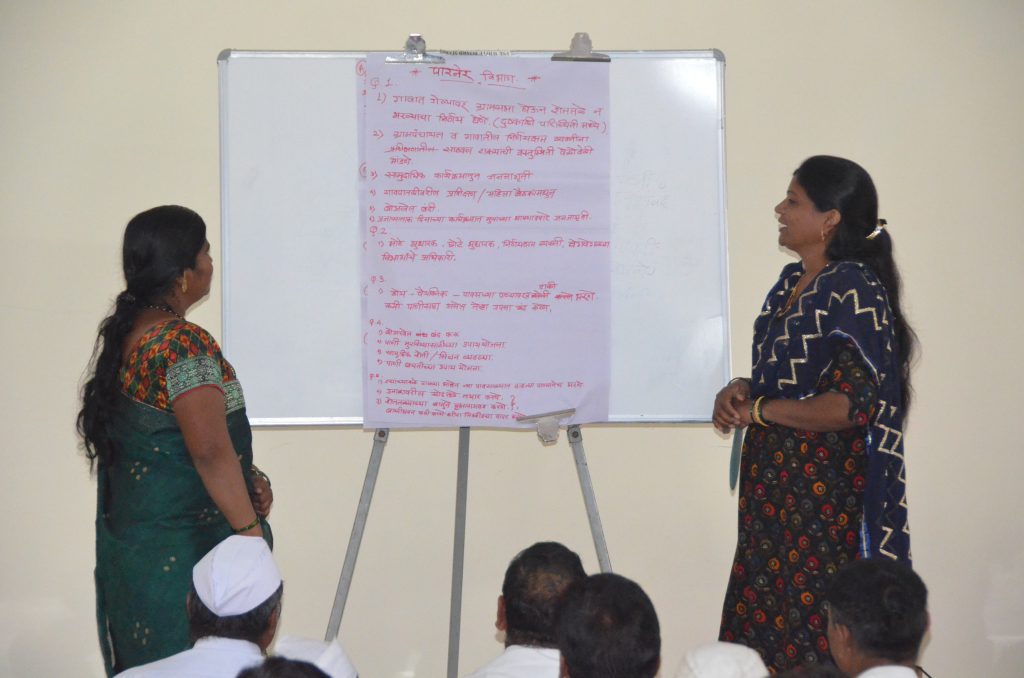
The Research into Use (RiU) approach, which involves communicating research findings with the community, has the added benefit of identifying gaps in newly generated knowledge and areas where further research is required, an observation I had in the discussed workshop. Collaborations between researchers and community members can also arise, with the community providing valuable insights and perspectives to guide future research.
This ensures that research is relevant and useful to the community, with community members providing feedback and suggestions for improving the research design and implementation. The Research into Use (RiU) approach thus promotes a collaborative and inclusive approach to research, with the potential to drive meaningful change in rural communities.
References:
- Bell, C., & Morse, S. (2013). Sustainability indicators and community-based research. Routledge.
- Chambers, R. (1994). Participatory rural appraisal (PRA): Challenges, potentials and paradigm. World Development, 22(10), 1437-1454.
- Harvey, B., & Van Epp, M. (2017). The CARIAA Research-into-Use Learning Guide.
- Kothari, C. R. (2004). Research methodology: Methods and techniques (2nd ed.). New Age International.

